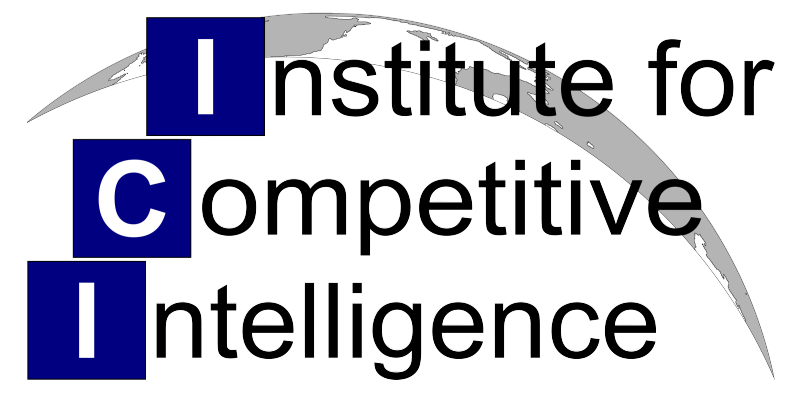Advances in the Art and Science of Competitive/Market Intelligence – 10th International Competitive & Market Intelligence Conference in Bad Nauheim

Since 10 years the international Competitive/Market Intelligence Conference is a fixed date for marketing and competitive intelligence professionals – be it employed MI/CI specialists or freelance service providers. The Institute of Competitive Intelligence (ICI) organizes this conference. This year’s location was the beautiful spa city of Bad Nauheim, Hassia State, Germany, not far from ICI’s Headquarters in Butzbach.
Over 100 participants came to Bad Nauheim to experience a wide variety of topics and methods at up to four days of workshops, lectures and CI practitioners‘ insights. Core of the event were two days of presentations and other conference formats. Participants could select between up to three tracks of interesting topics. These two days were accompanied by two workshops days (full day or half a day format) on selected practical issues such as OSINT techniques or technological forecasting.
Further, a three-day war game business simulation was running through the conference days. Three groups acted as catering companies fighting over market shares. The interactive format gave the participants much fun and an interesting conference experience.
The next paragraphs will give examples of topics presented at the conference:
This year’s keynote speaker was Shu Wang (Philipps Consumer Lifestyle). He gave an insight into the effects of digitalization in market intelligence. Using the example of consumer goods he compared “traditional” and “digital” approaches to market research. A manufacturer of consumer goods had to know how users assess their products, which criteria they use when making the decision for buying an certain product, which product features they consider important. A “traditional” way to examine this was a conjoint analysis with a test panel of e.g. 1,000 persons who were given real or fictional decision-making situations. Major drawbacks of this method were time and costs.
Wang showed that digitalization gives the researcher the opportunity to follow this decision-making process nearly real-time by using data from customers’ reviews published on online shops’ webpages. These customers have actually bought and used the items considered. Take Amazon, the world’s largest online store where Wang’s employer was also selling consumer products such as electric razors. Wang explained how they scraped and analyzed the product reviews written by actual customers to learn which product features users consider important. Product development could use the research results to improve the products. The advantages of the “digital” approach lay in cost and time. Further, researchers could make use of a much larger sample size.
Nevertheless, at the beginning stood human brain work in finding the right research questions and design of data search and analysis. Wang put it “process first – technology later.”
Another best-practice presentation also showed the use of digital methods in market research for predictive analytics problems. Erik Elgersma (Friesland Campina Netherlands) gave an example from the food industry. For an international manufacturer of dairy products the monitoring of both raw material (i.e. milk) and product prices is crucial. A big problem in this sector is the high price volatility. Retail practices require fixed price quotations with large retailers in Europe. Elgersma and his team set to mitigate the volatility problem by creating a price forecasting software instrument. Step by step they reached more accuracy and introduced by this more transparency in the price setting process. Same as in Wang’s keynote, the first step of the process was to pose the research question accurately and to use adequate data and models.
Fouad Benyoub (CGI) led in his presentation the way away from the world of digital tools by taking his audience through his career in CI. He shared his experiences and focused on the human relations side. Main topic of his speech was how to ensure that decision makers are actually listening to the CI department’s findings and suggestions. At the end, it meant selling ideas to people, same as the salespersons’ saying “people don’t buy form companies, they buy from humans.”
Another practical example was how to make use of patent data published by the respective patent authorities to gather information on markets. Philippe Borne (French Patent and Trademark Office) showed how the Office used its own patent data to identify potential customers for their training and consulting services for SMEs to encourage them to use (international) patent filing opportunities more actively. Martin Kracker (European Patent Office, EPO) showed another example from the world of patent data usage: EPO offers Linked Open Patent data. Experts (Data scientists) could use them to identify market trends or to gather information about company strategies or technical developments.
Ethical conduct is a crucial issue in the field of CI. Will Sampson (Airbus Helicopters) provided insights from his professional experience and the practice at his employer. He outlined that a code of conduct and compliance guidelines could also be a strong marketing claim for a company.
Apart from the usual Power Point slide presentations ongoing issues and trends were discussed in an unconferencing format. Participants first selected topics they wanted to discuss. Six topics were treated in the unconference, among others culture/country-specific factors in CI/MI, how to motivate other departments to cooperate with CI, or ethical issues. Experiences from diverse organizations and case contexts were shared and provided useful insights for other participants. Discussion was lively and in some groups extended the given time limit.
Social activities gave a relaxed and fun conference experience. For the 10th birthday of International Competitive & Market Intelligence Conference the organizers prepared a really amazing program. The evening event took place at the medieval castle of Ronneburg. A guided tour through the castle taught the participants about medieval lifestyle and intelligence techniques (aka torture rack). After a falconer’s demonstration, they enjoyed a medieval dinner with herald and singer.
The next International Competitive & Market Intelligence Conference will take place in Liège, Belgium, May 21-24, 2019. More information you'll find here.


